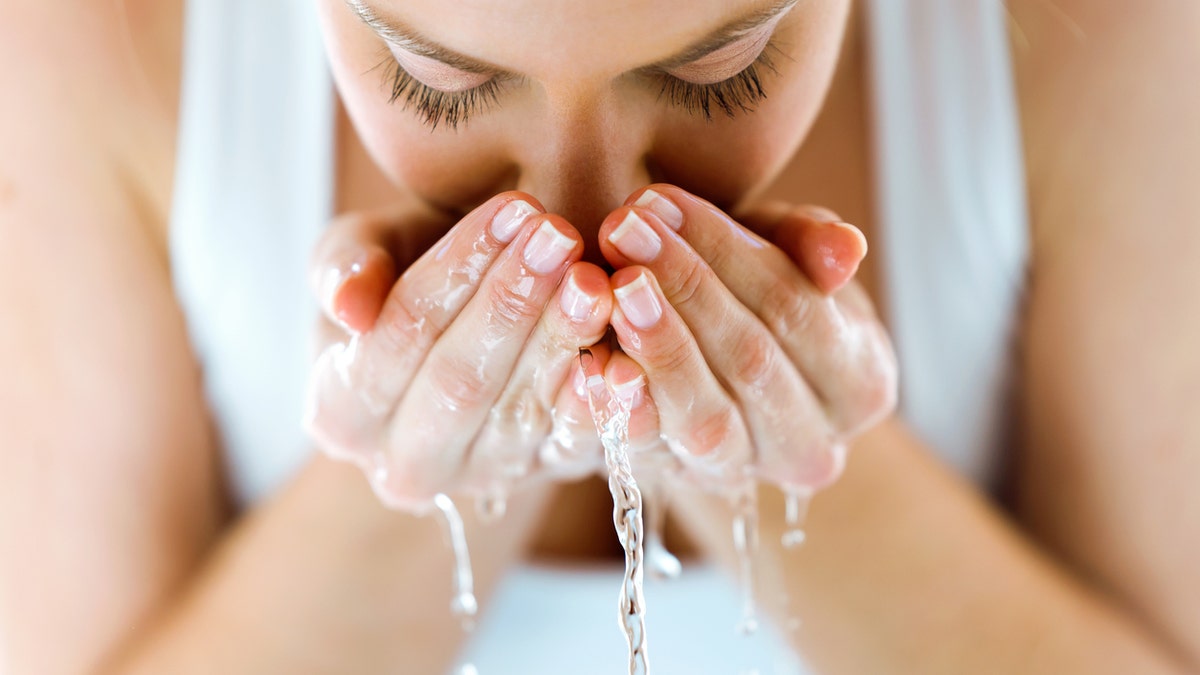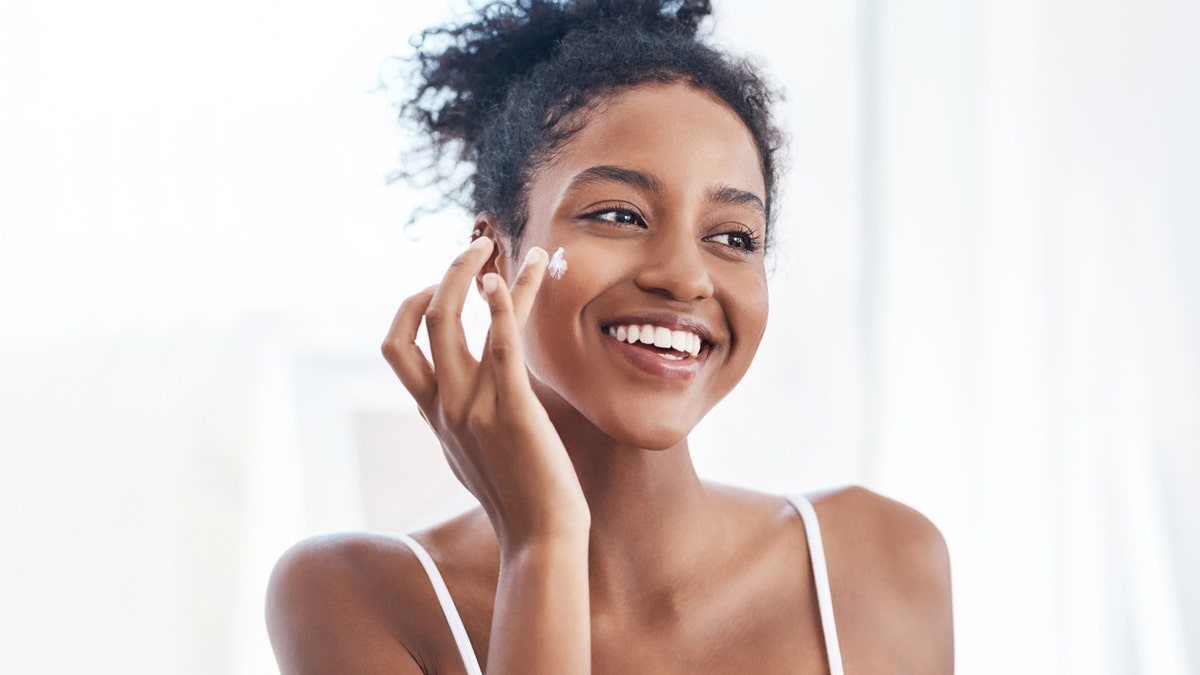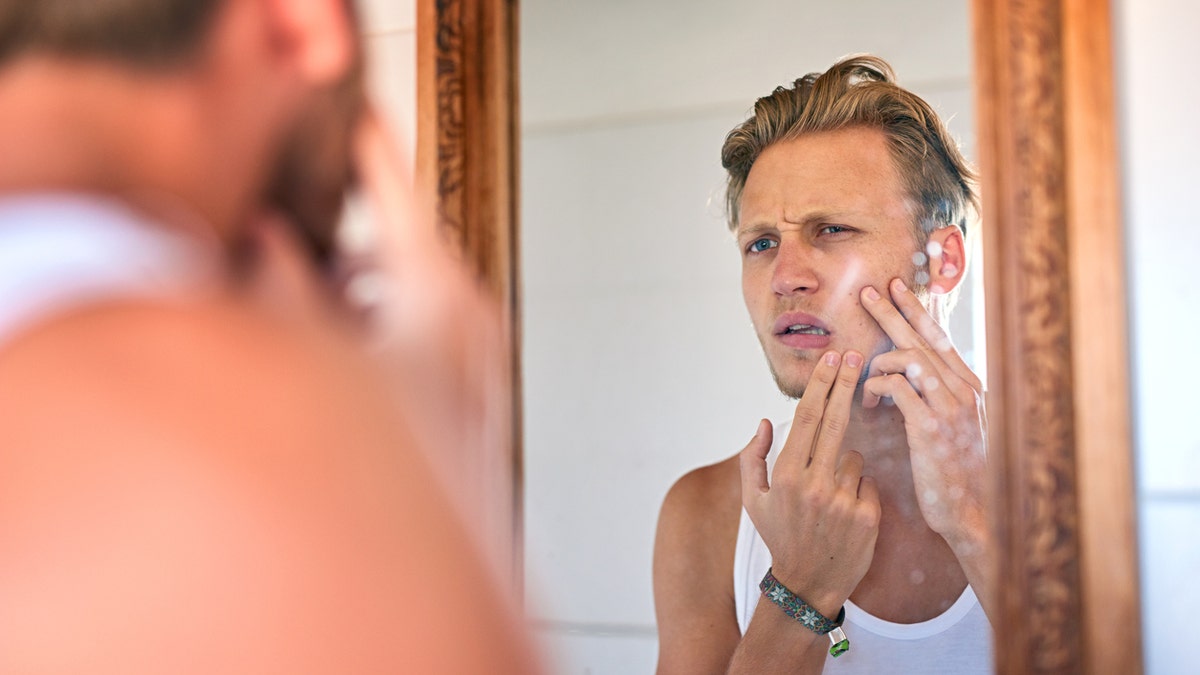Fox News Flash top headlines for June 24
Fox News Flash top headlines are here. Check out what's clicking on Foxnews.com.
As summertime brings scorching, humid days and sweat accumulates under face masks for many, top dermatologists offered advice for the best skincare practices.
Warm, humid environments and friction from face masks might promote acne, rosacea flares and perioral dermatitis (fine pimples and pustules around the nose and mouth), Dr. Amy Kassouf, a dermatologist at the Cleveland Clinic, told Fox News.
For clean, calm skin, Kassouf recommended daily use of a gentle, hydrating facial cleanser.

Dermatologists recommend daily use of a gentle, hydrating facial cleanser and a non-pore blocking moisturizing cream. (iStock)
Use a Cetaphil cleanser or Cerave foaming facial cleanser before putting on a face mask, Dr. Allison Truong, a dermatologist at Cedars-Sinai Medical Group and Cedars-Sinai Medical Center, told Fox News.
After cleansing, experts advise applying a non-comedogenic (or non-pore blocking) moisturizing cream. Opt for products containing ingredients such as dimethicone, ceramides and hyaluronic acid.

Moisturizing creams can improve the skin barrier and minimize irritation from face masks, experts say. (iStock)
Moisturize the face one hour prior to mask wear, paying particular attention to the bridge of the nose and upper cheeks where the mask sits to improve the skin barrier and minimize irritation from the mask, according to Dr. Andrew Alexis, director of the Skin of Color Center in the Mount Sinai Health System and professor of dermatology at the Icahn School of Medicine at Mount Sinai.
The lipid or oil from the cream could interfere with the seal of the mask, Alexis said.
“For those who wear N95 masks for long periods (e.g. health care workers) and are prone to irritation, a thin prophylactic silicone foam dressing can be applied to the bridge of the nose to protect from pressure injury,” Alexis told Fox News. “However, it is important to verify that the mask maintains a tight seal, even when such a thin dressing is applied.”
CLICK HERE FOR FULL CORONAVIRUS COVERAGE
For those prone to acne, experts generally recommend products containing salicylic acid or benzoyl peroxide (at a concentration of 5.5 percent or less). If rashes or acne persist, it might be due to different processes, like hormonal acne, which causes acne bumps or cystic acne on the chin.
Perhaps apply acne medications at night when face masks aren’t used, Dr. Carrie Kovarik, associate professor of dermatology at the Perelman School of Medicine at the University of Pennsylvania, told Fox News. Using acne medications could irritate the skin when trapped under the mask, she said.

For those prone to acne, experts generally recommend products containing salicylic acid or benzoyl peroxide (at a concentration of 5.5 percent or less). (iStock)
Many patients might not have acne but could have irritation from the mask, Truong said, adding that “patients may have irritant or allergic contact dermatitis from the masks from either the ingredients used to make the mask, or perhaps laundry detergent used to wash the fabric masks, these can all lead to eczema-like rash on the face.”
Alleviate irritation from masks by switching to a different brand, trying fabric face masks or using a gentle laundry detergent like ARM & HAMMER'S Sensitive Skin, Free & Clear, she advised.
Don’t reach for that mask just yet. Dermatologists also recommend applying sunscreen when outdoors because any sunscreen under the mask is likely wiped off or forgotten in the first place.
WHICH STATES REQUIRE CORONAVIRUS FACE MASKS IN PUBLIC?
Truong said to apply a broad-spectrum sunscreen containing zinc or titanium oxide before wearing a mask.
Since many people are spending considerable time outside, look for an SPF of at least 30 in the moisturizer that is used in the morning, Kovarik said,
“Don’t forget about your lips, as they can be affected by the friction of the mask – consider applying petrolatum to your lips before you wear your mask and at bedtime,” Kovarik added.
Finally, experts advised choosing a comfortable mask given potential long periods of wear. Make sure the mask is breathable and doesn’t irritate the skin.









































